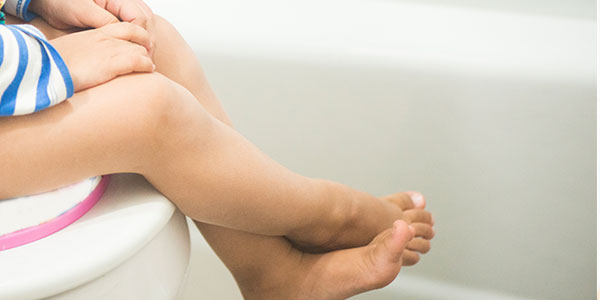Children at any age can have constipation – from a tiny newborn to an active high schooler. In general, constipation in children causes hard-to-pass stool, which may or may not cause pain. How to identify constipation, how to treat it and how to prevent it will vary depending on a child’s age.
Yvonne Brouard, M.D., a pediatrician at the Sutter Gould Medical Foundation in Modesto, shares her advice and recommendations to parents on what to look for and what you can do to help your child.










